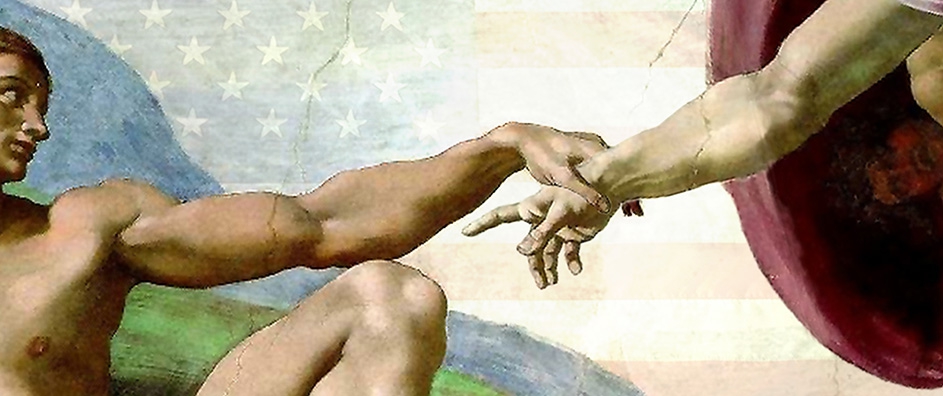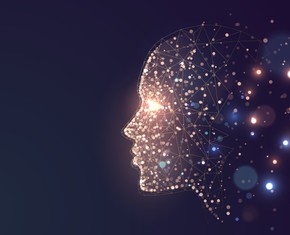The views expressed in our content reflect individual perspectives and do not represent the authoritative views of the Baha'i Faith.
In this series of articles, we’ve looked at the five reasons corruption effects religion, from Dr. Charles Kimball’s fascinating recent book When Religion Becomes Evil.
Dr. Kimball, an historian, professor of comparative religion, chair of the department of religion at Wake Forest University and an ordained Baptist minister, concludes his book with a call for all people to recognize those five reasons for religious corruption, and act to understand and correct them:
Whether one is a true believer or a die-hard secularist, it remains necessary to take the next step from the knowledge of these factors that predict when religion becomes evil to a clear understanding of how religion can remain true to its authentic sources and a force for positive change. …As people of faith look to the future…we would all do well to focus on the twofold mandate to love God and to love our neighbor. – p. 187; p. 213.
But is it possible for a corrupted religion to somehow renew itself, to recover its original authenticity, power and influence? Can an ancient Faith somehow go from a state of decay, with its hidebound, inflexible and immutable dogmas and doctrines, its corrupt clergy and the antithetical or even fanatical behavior of its followers miraculously changed for the better?
The Baha’i teachings look at this crucial human question in a new and completely different way:
Religion is the outer expression of the divine reality. Therefore it must be living, vitalized, moving and progressive. If it be without motion and non-progressive it is without the divine life; it is dead. …All things are subject to re-formation. This is a century of life and renewal. Sciences and arts, industry and invention have been reformed. Law and ethics have been reconstituted, reorganized. The world of thought has been regenerated. Sciences of former ages and philosophies of the past are useless today. Present exigencies demand new methods of solution; world problems are without precedent. Old ideas and modes of thought are fast becoming obsolete. Ancient laws and archaic ethical systems will not meet the requirements of modern conditions…. It is evident that no vital results are now forthcoming from the customs, institutions and standpoints of the past. In view of this, shall blind imitations of ancestral forms and theological interpretations continue to guide and control the religious life and spiritual development of humanity today? Shall man gifted with the power of reason unthinkingly follow and adhere to dogma, creeds and hereditary beliefs which will not bear the analysis of reason in this century of effulgent reality?
…The divine prophets have revealed and founded religion. They have laid down certain laws and heavenly principles for the guidance of mankind. They have taught and promulgated the knowledge of God, established praiseworthy ethical ideals and inculcated the highest standards of virtues in the human world. Gradually these heavenly teachings and foundations of reality have been beclouded by human interpretations and dogmatic imitations of ancestral beliefs. The essential realities which the prophets labored so hard to establish in human hearts and minds while undergoing ordeals and suffering tortures of persecution, have now well nigh vanished. Some of these heavenly messengers have been killed, some imprisoned; all of them despised and rejected while proclaiming the reality of divinity. Soon after their departure from this world, the essential truth of their teachings was lost sight of and dogmatic imitations adhered to. Inasmuch as human interpretations and blind imitations differ widely, religious strife and disagreement have arisen among mankind, the light of true religion has been extinguished and the unity of the world of humanity destroyed.
…The nations and religions are steeped in blind and bigoted imitations. A man is a Jew because his father was a Jew. The Muhammadan follows implicitly the footsteps of his ancestors in belief and observance. The Buddhist is true to his heredity as a Buddhist. That is to say they profess religious belief blindly and without investigation, making unity and agreement impossible. It is evident therefore that this condition will not be remedied without a reformation in the world of religion. In other words the fundamental reality of the divine religions must be renewed, reformed, revoiced to mankind. – Abdu’l-Baha, Baha’i World Faith, pp. 224-226.
Religion, the Baha’i teachings say, cannot be repaired but must be replaced, remade, reborn:
This has been the case also with the religious teachings so long set forth in the temples and churches, because they were not based upon the fundamental principles of the religions of God. In other words, the foundation of the divine religions had become obscured and nonessentials of form and ceremony were adhered to — that is, the kernel of religion had apparently disappeared, and only the shell remained. Consequently, it was necessary that the fundamental basis of all religious teaching should be restored, that the Sun of Reality which had set should rise again, that the springtime which had refreshed the arena of life in ages gone by should appear anew, that the rain which had ceased should descend, that the breezes which had become stilled should blow once more. – Abdu’l-Baha, The Promulgation of Universal Peace, p. 378.
Baha’u’llah taught that each major world religion represents a successive stage in the spiritual evolution of human society. Within that framework of progressive revelation, all the great Faiths were born, grew to maturity and then suffered a gradual decline. That cycle, Baha’u’llah points out, applies to every living thing, including religion.
Today Baha’u’llah has brought us a new religion, the Baha’i Faith, that both continues and renews all the religions of the past.

















Comments
Sign in or create an account
Continue with Googleor